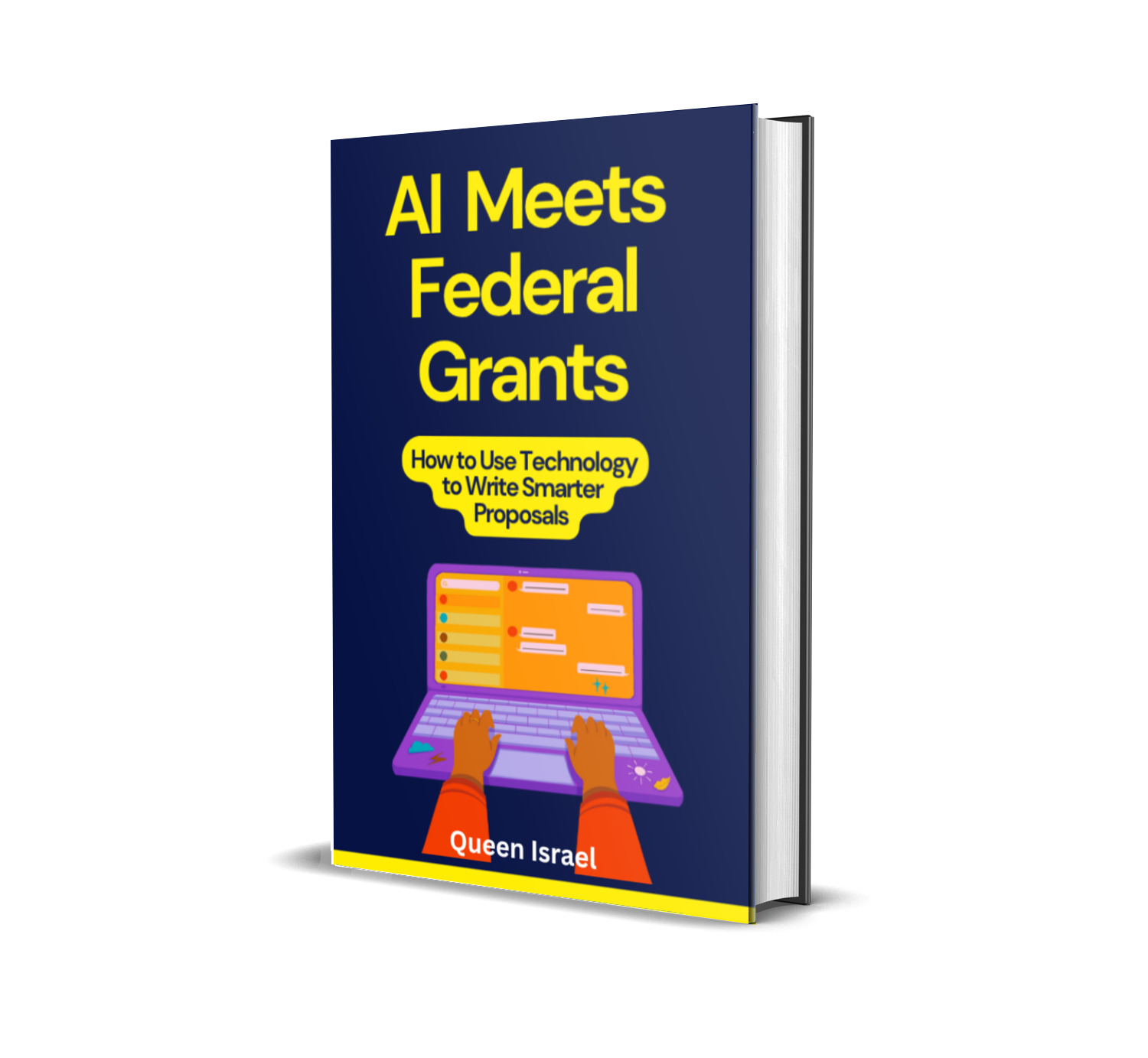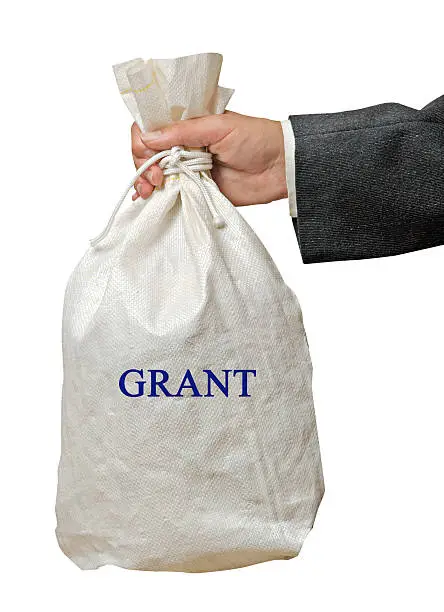Grants for minorities are financial assistance programs designed to empower individuals from underrepresented communities.
These initiatives aim to bridge economic gaps, foster diversity, and promote equal opportunities. By providing funding for education, entrepreneurship, and community projects, these grants play a pivotal role in addressing systemic inequalities.
From scholarships supporting minority students to grants encouraging minority-owned businesses, these initiatives contribute to a more inclusive and vibrant society. Embracing diversity through targeted financial support is not just an investment in individuals; it’s an investment in building a stronger, more equitable future for all.
The Importance of the Grants for Minorities
1. Educational Empowerment:
- Access to Higher Education: Minority-focused grants open doors to education by alleviating financial burdens on students. This ensures that talented individuals, regardless of their economic background, have the opportunity to pursue higher education.
- Closing the Achievement Gap: By providing resources to minority students, these grants contribute to narrowing the achievement gap. This, in turn, enhances overall educational outcomes and creates a more skilled and diverse workforce.
2. Entrepreneurial Opportunities:
- Supporting Minority-Owned Businesses: Grants play a crucial role in fostering entrepreneurship within minority communities. Financial assistance enables the establishment and growth of businesses owned by minorities, contributing to economic development and job creation.
- Innovation and Economic Impact: Diverse perspectives drive innovation. By supporting minority entrepreneurs, grants not only promote diversity in business but also stimulate economic growth by encouraging a variety of business ideas and solutions.
3. Community Development:
- Enhancing Local Communities: Grants geared towards community projects uplift neighborhoods by funding initiatives that address specific needs, such as healthcare, infrastructure, or cultural programs. This leads to overall community development and improved quality of life.
- Social Cohesion: Financially supporting projects within minority communities fosters social cohesion. It strengthens the sense of community and encourages collaboration, creating a positive ripple effect that extends beyond the immediate beneficiaries.
4. Breaking Systemic Barriers:
- Addressing Historical Injustices: Many minority communities have faced historical injustices and systemic barriers. Grants serve as a tool to rectify these disparities, promoting social justice and dismantling obstacles that have hindered progress for generations.
- Building a More Inclusive Society: The importance of grants for minorities lies in their contribution to building a society that is inclusive and values diversity. This not only benefits minority individuals but enriches the entire community by harnessing the strengths of a diverse population.
5. Long-Term Impact:
- Generational Influence: Grants have the power to break the cycle of poverty and inequality by providing resources that empower current and future generations. This creates a positive ripple effect, influencing families and communities for years to come.
- Strengthening Social Fabric: The impact of minority-focused grants goes beyond the immediate beneficiaries. It strengthens the social fabric of society, promoting understanding, empathy, and collaboration among people from diverse backgrounds.
Comprehensive list of Foundations Awarding Grants for Minorities and their websites
- The Gates Millennium Scholars Program
- Website: Gates Millennium Scholars Program
- Overview: This foundation supports outstanding minority students with significant financial need, providing scholarships for undergraduate and graduate education. It aims to create leaders who excel academically and are committed to community service.
- United Negro College Fund (UNCF)
- Website: UNCF
- Overview: UNCF is one of the largest scholarship providers for minority students, supporting historically Black colleges and universities (HBCUs). They offer various scholarship and grant programs to empower students of color.
- Hispanic Scholarship Fund (HSF)
- Website: Hispanic Scholarship Fund
- Overview: HSF focuses on empowering Hispanic students through scholarships and educational support. Their programs aim to increase the number of Latinos pursuing higher education and succeeding in their careers.
- Asian & Pacific Islander American Scholarship Fund (APIASF)
- Website: APIASF
- Overview: APIASF is dedicated to providing opportunities for Asian and Pacific Islander Americans through scholarships, mentorship, and resources. They aim to increase access to higher education and support the diverse AAPI community.
- National Black MBA Association (NBMBAA)
- Website: NBMBAA
- Overview: NBMBAA focuses on advancing Black professionals in business and management. They offer scholarships, mentorship, and networking opportunities to support the academic and professional success of Black individuals.
- Society of Hispanic Professional Engineers (SHPE) Foundation
- Website: SHPE Foundation
- Overview: Supporting Hispanic individuals in STEM fields, SHPE Foundation provides scholarships, mentorship, and resources to empower Hispanic students pursuing careers in science, technology, engineering, and mathematics.
- American Indian College Fund
- Website: American Indian College Fund
- Overview: Focused on supporting Native American students, this fund provides scholarships and support for tribal colleges and universities. It aims to increase educational opportunities and empower Native American communities.
- National Association for the Advancement of Colored People (NAACP)
- Website: NAACP
- Overview: The NAACP provides various scholarships and grants to support the education and advancement of African American individuals. These opportunities aim to empower the next generation of leaders.
- Thurgood Marshall College Fund (TMCF)
- Website: TMCF
- Overview: TMCF supports students attending publicly-supported Historically Black Colleges and Universities (HBCUs) by offering scholarships, internships, and professional development programs.
- National Society of Black Engineers (NSBE)
- Website: NSBE
- Overview: NSBE provides scholarships, mentorship, and resources to Black individuals pursuing careers in engineering. Their programs aim to increase diversity in the engineering profession.
- Minority Corporate Counsel Association (MCCA)
- Website: MCCA
- Overview: MCCA offers scholarships and initiatives to support minority individuals pursuing legal careers. Their programs focus on increasing diversity in the legal profession.
- Congressional Hispanic Caucus Institute (CHCI)
- Website: CHCI
- Overview: CHCI provides scholarships, fellowships, and leadership development programs for Latino students and young professionals. Their initiatives aim to promote Latino representation and leadership.
- National Minority Supplier Development Council (NMSDC)
- Website: NMSDC
- Overview: NMSDC supports minority-owned businesses through various programs, including grants and resources. Their focus is on fostering economic opportunities and growth within minority communities.
- Women of Color STEM Conference
- Website: Women of Color STEM Conference
- Overview: This conference recognizes and supports women of color in science, technology, engineering, and mathematics (STEM) fields. It offers scholarships and networking opportunities.
- National Urban League
- Website: National Urban League
- Overview: The National Urban League provides scholarships and programs to support African American individuals in various fields, including education, employment, and economic empowerment.
- The Point Foundation – LGBTQ+ Scholarship Fund
- Website: Point Foundation
- Overview: The Point Foundation offers scholarships and mentorship to LGBTQ+ students, including those from minority backgrounds, to support their education and leadership development.
- The Association of Asian Pacific Community Health Organizations (AAPCHO)
- Website: AAPCHO
- Overview: AAPCHO supports health initiatives within Asian American, Native Hawaiian, and Pacific Islander communities. They may provide grants for health-related projects and programs.
- AIGA Worldstudio Scholarships
- Website: AIGA Worldstudio Scholarships
- Overview: AIGA offers scholarships to minority and economically disadvantaged students pursuing studies in art and design, aiming to increase diversity in the creative industries.
- Minorities in Agriculture, Natural Resources, and Related Sciences (MANRRS)
- Website: MANRRS
- Overview: MANRRS supports underrepresented minorities in agriculture, natural resources, and related sciences. They offer scholarships, mentorship, and professional development opportunities
- American Indian Science and Engineering Society (AISES)
- Website: AISES
- Overview: AISES supports Native American students pursuing degrees in science, technology, engineering, and mathematics (STEM). They offer scholarships, internships, and resources to empower Indigenous individuals in STEM fields.
- The Jackie Robinson Foundation
- Website: Jackie Robinson Foundation
- Overview: This foundation provides scholarships and mentorship to minority students in honor of Jackie Robinson’s legacy. Their programs focus on leadership development and community service.
- National Action Council for Minorities in Engineering (NACME)
- Website: NACME
- Overview: NACME aims to increase the representation of underrepresented minorities in engineering by offering scholarships, support, and mentorship programs.
- National Hispanic Business Women Association (NHBWA)
- Website: NHBWA
- Overview: NHBWA supports Hispanic women in business through various initiatives, including scholarships, mentorship, and networking opportunities.
- The LGBTQ Scholarship at the Pride Foundation
- Website: Pride Foundation
- Overview: The Pride Foundation offers scholarships to LGBTQ+ and allied students, supporting their educational goals and community involvement.
- National Association of Asian American Professionals (NAAAP) Scholarship Program
- Website: NAAAP
- Overview: NAAAP provides scholarships to Asian American students, emphasizing leadership development and community engagement.
- American Indian Graduate Center (AIGC)
- Website: AIGC
- Overview: AIGC offers scholarships and fellowships to Native American and Alaska Native graduate students across various fields of study.
- The Adelante Fund
- Website: The Adelante Fund
- Overview: The Adelante Fund supports Hispanic students pursuing higher education by providing scholarships and resources.
- Arab American Institute (AAI) Foundation
- Website: AAI Foundation
- Overview: AAI Foundation offers scholarships and educational programs to Arab American students, fostering academic success and community engagement.
- The Black Women’s Health Imperative (BWHI)
- Website: BWHI
- Overview: BWHI focuses on the health and wellness of Black women. While not a scholarship provider, they may support initiatives addressing health disparities within minority communities.
How to Apply for the Grants
1. Research and Identify Opportunities:
- Engage in Thorough Research: Explore a variety of grant opportunities tailored to your background, field of study, or business venture. Utilize online databases, visit foundation websites, and attend informational sessions to gather insights.
- Verify Eligibility: Before investing time in the application, ensure you meet the eligibility criteria specified by the grant provider. Different grants target various demographics, educational levels, and fields of interest.
2. Prepare Necessary Documentation:
- Create a Checklist: Compile a checklist of required documents, which may include transcripts, letters of recommendation, a resume, personal statements, and specific project proposals. Organizing these in advance streamlines the application process.
- Craft a Compelling Personal Statement: Clearly articulate your goals, aspirations, and the impact the grant will have on your academic or professional journey. Emphasize your unique experiences, skills, and contributions.
3. Tailor Your Application:
- Customize Each Application: Avoid a one-size-fits-all approach. Tailor your application to the specific requirements of each grant. Highlight relevant experiences, achievements, and aspirations that align with the mission of the grant provider.
- Address Selection Criteria: Explicitly address each criterion outlined in the application guidelines. Clearly demonstrate how you meet and exceed the expectations, making it easy for reviewers to recognize your suitability for the grant.
4. Seek Guidance and Feedback:
- Consult Advisors or Mentors: Reach out to professors, mentors, or professionals in your field for guidance. Their insights can enhance the quality of your application and provide valuable perspectives.
- Request Feedback: Share your application draft with peers or mentors and seek constructive feedback. This iterative process can refine your application and ensure clarity and coherence.
5. Showcase Impact and Future Plans:
- Emphasize Impact: Clearly articulate how receiving the grant will impact your academic, professional, or community goals. Grant providers are often interested in the broader implications of their support.
- Outline Future Plans: Illustrate your plans beyond the grant period. Whether it’s completing a degree, launching a project, or contributing to your community, outlining your trajectory adds depth to your application.
6. Follow Guidelines and Deadlines:
- Adhere to Guidelines: Carefully read and follow the application guidelines provided by the grant organization. Failure to comply with specific instructions can negatively impact your application.
- Meet Deadlines: Submit your application well before the deadline. Procrastination can lead to unnecessary stress and may compromise the quality of your submission.
7. Prepare for Interviews (if applicable):
- Anticipate Interview Questions: Some grants may require an interview as part of the selection process. Anticipate common questions related to your goals, experiences, and the potential impact of the grant.
- Demonstrate Enthusiasm: During interviews, express your passion for your field of study or project. Clearly communicate why you are the ideal candidate and how the grant will further your objectives.
8. Submit a Polished Application:
- Proofread Thoroughly: Typos and errors can detract from the professionalism of your application. Proofread multiple times or ask someone else to review your materials.
- Submit Complete Application: Ensure all required documents and information are included. An incomplete application may be disqualified, so double-check your submission.
9. Express Gratitude:
- Thank the Grant Provider: Regardless of the outcome, express gratitude to the grant provider for the opportunity. This positive gesture can leave a lasting impression for future opportunities.
Remember, the application process is not just about meeting requirements but about telling your unique story and demonstrating why you are the right fit for the grant. Approach it with authenticity, diligence, and a genuine passion for your chosen path.
The Impact of the Grants for Minorities
1. Educational Advancement:
- Access to Learning Resources: Grants often alleviate financial barriers to education, enabling recipients to access textbooks, research materials, and educational technology crucial for academic success.
- Reduced Financial Stress: By covering tuition, fees, or living expenses, grants reduce the financial burden on students. This, in turn, allows them to focus more on their studies and less on financial challenges.
2. Professional Development:
- Skill Enhancement: Grants may support workshops, conferences, or training programs, fostering skill development. This not only benefits the individual but contributes to a more skilled and competitive workforce.
- Networking Opportunities: Some grants include mentorship or networking components, providing recipients with valuable connections and guidance that can shape their professional trajectory.
3. Entrepreneurial Empowerment:
- Seed Funding for Businesses: Grants for minority-owned businesses offer crucial seed funding. This capital kickstarts entrepreneurship, facilitates business growth, and enhances economic opportunities within minority communities.
- Community Impact: Successful businesses contribute to job creation and economic development. The ripple effect of entrepreneurial empowerment positively influences the overall well-being of the community.
4. Research and Innovation:
- Advancements in Research: Research grants propel scientific discovery and innovation. They provide funding for experiments, data collection, and equipment, contributing to breakthroughs that benefit society as a whole.
- Encouraging Diverse Perspectives: Grants often support projects that embrace diverse perspectives and address unique challenges. This diversity fosters a more comprehensive understanding of complex issues.
5. Community Development:
- Infrastructure Improvement: Grants supporting community projects, such as healthcare clinics or cultural centers, enhance the overall quality of life. These projects strengthen social bonds and create spaces for collaboration and connection.
- Addressing Social Injustices: Grants aimed at tackling social injustices have a direct impact on marginalized communities. They support initiatives that advocate for equity, justice, and positive social change.
6. Breaking Cycles of Inequality:
- Education as an Equalizer: Educational grants, especially for minorities, break cycles of inequality by providing opportunities that may have been historically inaccessible. This creates a more level playing field.
- Long-Term Impact on Generations: The impact of grants extends beyond the immediate recipient. By breaking systemic barriers, grants contribute to the long-term empowerment of families and communities, creating a legacy of positive change.
7. Cultural Preservation:
- Supporting Arts and Culture: Grants in the arts and cultural sectors contribute to the preservation and promotion of diverse cultural expressions. This enriches society by fostering creativity and preserving heritage.
- Promoting Inclusivity: Cultural grants often emphasize inclusivity, supporting projects that amplify voices from underrepresented communities. This contributes to a more inclusive cultural landscape.
8. Increased Civic Engagement:
- Empowering Advocacy: Grants supporting community activism and advocacy empower individuals to address social and political issues. This increased civic engagement fosters a more participatory and democratic society.
- Creating Change Agents: Grant recipients often become catalysts for change within their communities. Their initiatives inspire others to engage in meaningful projects that address local and global challenges.
Tips for Writing a Successful Grant Proposal
1. Understand the Grantor’s Objectives:
- Thoroughly Read Guidelines: Start by carefully reading the grant guidelines. Understand the objectives, eligibility criteria, and any specific requirements outlined by the grantor. This foundational understanding is crucial for tailoring your proposal.
- Research the Grantor: Explore the grantor’s previous projects and values. Aligning your proposal with their mission increases your chances of success.
2. Clearly Define Your Project:
- Craft a Compelling Narrative: Clearly articulate the purpose, goals, and anticipated outcomes of your project. Develop a narrative that engages the reader and highlights the significance of your work.
- Use Clear and Concise Language: Avoid jargon and overly technical language. Ensure that your proposal is accessible to a diverse audience, including those who may not be experts in your field.
3. Address a Specific Need:
- Identify a Gap or Challenge: Clearly identify the problem or need your project addresses. Articulate how your proposal fills a gap or resolves an issue, emphasizing its relevance and urgency.
- Demonstrate Community Impact: Illustrate how the proposed project positively impacts the community or target audience. Highlight the potential for long-term, sustainable change.
4. Develop a Realistic Budget:
- Thoroughly Outline Expenses: Provide a detailed and realistic budget that aligns with your project’s objectives. Clearly explain how grant funds will be allocated and justified.
- Consider In-Kind Contributions: If applicable, showcase any in-kind contributions or partnerships that demonstrate a broader support network for your project.
5. Showcase Your Expertise:
- Highlight Relevant Experience: Emphasize your team’s expertise and experience relevant to the project. Showcase previous successes and lessons learned from similar initiatives.
- Include Letters of Support: If possible, include letters of support from collaborators, community leaders, or experts in your field. These endorsements add credibility to your proposal.
6. Create a Realistic Timeline:
- Provide a Detailed Timeline: Outline a realistic and achievable timeline for project implementation. Clearly define milestones, deadlines, and the expected duration of each project phase.
- Factor in Contingencies: Anticipate potential challenges and include contingency plans in your timeline. This demonstrates foresight and a proactive approach to project management.
7. Demonstrate Sustainability:
- Detail Sustainability Plans: Illustrate how the project will continue to have a positive impact beyond the grant period. Address long-term sustainability through partnerships, community involvement, or future funding strategies.
- Showcase Capacity Building: If applicable, describe how your project contributes to capacity building within the organization or community.
8. Tailor Your Proposal:
- Customize for Each Grant: Avoid using a generic proposal for multiple grants. Tailor each proposal to the specific requirements and priorities of the grantor.
- Use Visuals Wisely: Incorporate visuals, such as charts or graphs, to enhance clarity. Ensure that visuals are relevant and support key points in your proposal.
9. Be Transparent and Honest:
- Be Transparent about Challenges: If your project has potential challenges or limitations, address them transparently. Demonstrating awareness and honesty enhances your credibility.
- Adhere to Ethical Standards: Follow ethical guidelines in your proposal. Clearly state how you will adhere to ethical considerations, particularly in research or community engagement projects.
10. Seek Feedback:
- Get Input from Peers: Share your proposal with colleagues or mentors for constructive feedback. Fresh perspectives can help identify areas for improvement.
- Review and Revise: Take the time to review and revise your proposal iteratively. A well-polished document reflects dedication and attention to detail.
11. Submit On Time:
- Meet Deadlines: Submit your proposal well before the deadline. Late submissions are often disqualified, regardless of the proposal’s quality.
- Confirm Application Components: Ensure that you’ve included all required documents and attachments. A thorough and complete submission demonstrates professionalism.
Writing a successful grant proposal requires a combination of strategic planning, effective communication, and a deep understanding of both your project and the grantor’s expectations. By following these tips, you’ll be well-equipped to craft a compelling proposal that stands out and increases your chances of securing the support your project deserves.
Conclusion on Grants for Minorities
Grants for minorities play a pivotal role in fostering inclusivity, breaking down barriers, and creating pathways to success. These initiatives, spanning education, entrepreneurship, and community development, contribute to a more equitable society. By providing financial support, these grants empower individuals to pursue education, entrepreneurship, and community initiatives that might otherwise be out of reach.
The impact of grants extends beyond the individual recipients, influencing communities and generations. Educational empowerment leads to skilled and diverse workforces, while entrepreneurial support stimulates economic growth within minority communities. Community development grants enhance the quality of life and contribute to social cohesion.
As we acknowledge the importance of these grants, it’s crucial to recognize the ongoing commitment needed to address systemic inequalities. Grant programs, combined with efforts to dismantle barriers and promote diversity, contribute to the collective journey toward a more just and inclusive future. By investing in the potential of minority individuals and communities, grants become catalysts for positive change, creating a ripple effect that resonates far beyond the initial beneficiaries. In the pursuit of a truly equitable society, grants for minorities stand as beacons of opportunity and progress.
Recommended Books for Enhancing Grant Writing Skills
To further enhance your grant writing skills and stay on top of these trends, consider diving into some insightful literature.
Here are a few recommended books:
- The Ultimate Guide to Federal Grant Applications: Techniques for Success – This book is a must-read for anyone looking to navigate the complex world of federal grant applications. It offers practical techniques, insider tips, and a comprehensive understanding of what it takes to create successful federal grant applications.
- Advanced Grant Writing for Nonprofits : Focuses on sophisticated techniques for experienced grant writers. It delves into complex aspects of proposal development, offering strategies for dealing with competitive grant environments and large funding bodies.
- Mastering Grant Writing: A Nonprofit’s Guide to Effective Proposal Development and Submission: This book serves as a comprehensive guide, covering the entire process of grant writing. It includes tips on understanding funders’ perspectives, crafting compelling narratives, and the nuances of proposal submission.
- Becoming the Grant Guru: Freelancer’s Guide to Success : Tailored for freelance grant writers, this book provides insights into building a successful career in grant writing. It includes strategies for finding clients, managing projects, and maximizing the impact of grant proposals.
- The Small Business’s Guide to Winning Grants : This resource is particularly useful for small businesses looking to secure grants. It offers practical advice on identifying suitable grant opportunities, understanding the requirements of small business grants, and crafting winning proposals.
- Grant Readiness Guide: Preparing to Triumph in Funding Opportunities : A comprehensive resource for organizations at various stages of grant preparedness. It provides a roadmap for developing organizational capacity, aligning projects with funders’ goals, and creating compelling applications.
- Her Capital: Unlocking Women’s Small Business Grants: Specifically designed for women entrepreneurs, this book offers guidance on navigating the landscape of small business grants for women. It includes insights into grant sources, application strategies, and tips for leveraging grants to grow a business.
Unlock Your Grant Success!






